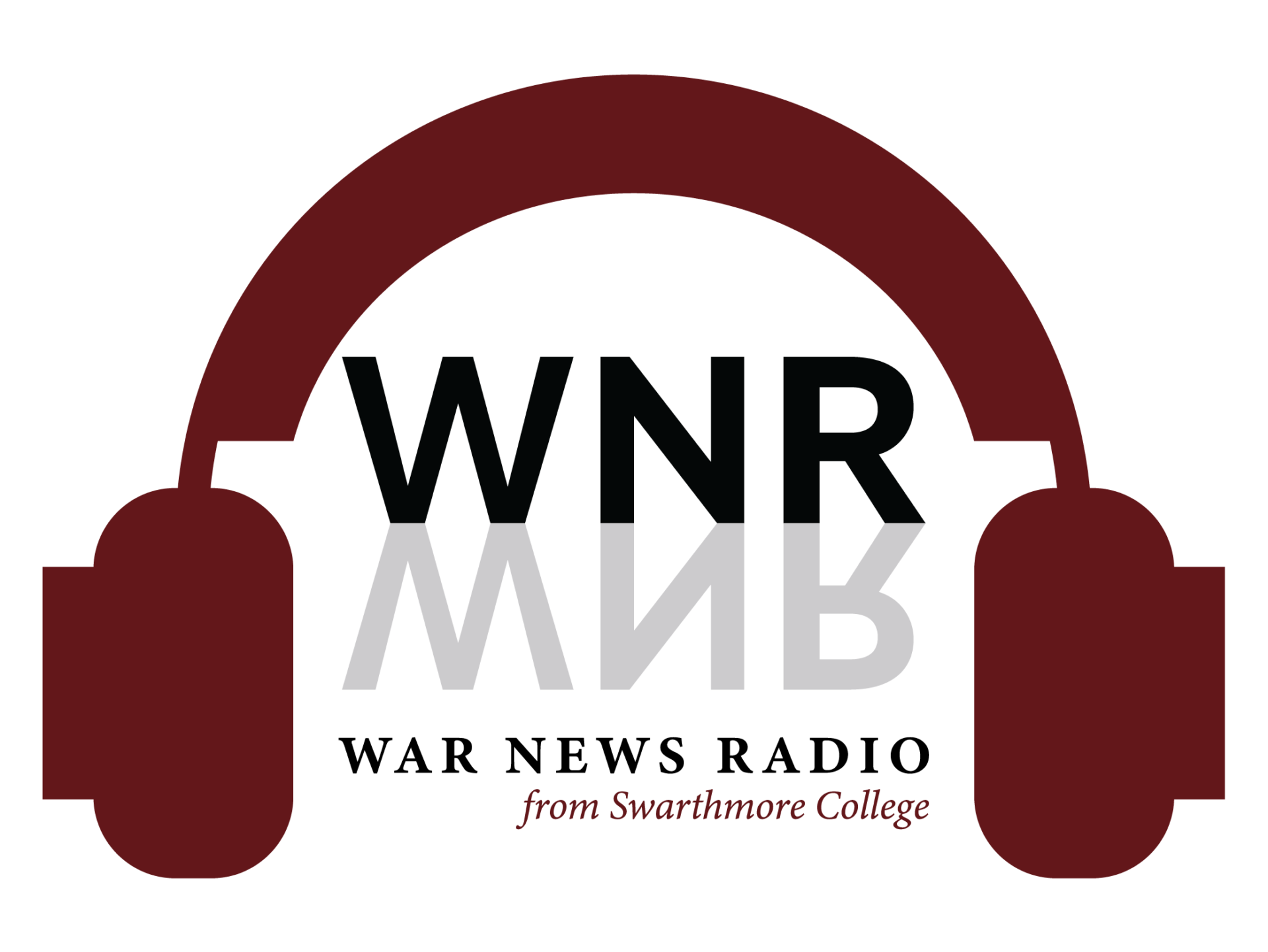Weekly Newscast – March 20, 2014
Henry Zhang: For War News Radio at Swarthmore College, I’m Henry Zhang.
Jay Clayton: And I’m Jay Clayton. Russian President Vladimir Putin has signed a treaty formally annexing Crimea, after the region voted to join the Russian Federation earlier this week. Putin justified the move by citing the plight of ethnic Russians in Crimea. Russian officials have also pointed to the results of the recent referendum, in which a reported 95% of Crimean voters expressed support for joining Russia. The interim Ukrainian government has denounced the vote as illegal. The United States government has also criticized annexation, with Vice President Joe Biden calling the move, quote, “a land grab.” The US and European Union have since imposed sanctions on Russia, ranging from travel bans to the freezing of assets of Russian and Ukrainian officials. These sanctions target those linked to Russia’s annexation of Crimea, including two top aides to Putin, Vladislav Surkov and Sergei Glazyev.
Zhang: Israeli air forces fired on Syrian military bases in the Golan Heights in response to a bombing earlier this week that injured four Israeli soldiers. While no group has claimed responsibility for the attacks against the Israeli Army patrol, Israeli Lieutenant Colonel Peter Lerner stated that Israel would hold the Syrian Army responsible for the blast. Israel’s subsequent military action killed one Syrian soldier and wounded seven. The Syrian Army claimed that Israel’s attack was a violation of the 1973 Separation of Forces agreement, which maintained relative peace along the Syrian-Israeli ceasefire line in the Golan Heights. This border conflict marks the most serious confrontation between the two countries since the start of the Syrian civil war three years ago and has led many to question the extent of Israel’s involvement in the conflict.
Clayton: Syria has failed to eliminate 12 chemical production facilities by the March 15th deadline set in place by the United Nations Security Council last September. Syrian government officials argue that security concerns are the reason for such delays, citing recent attacks on convoys transporting chemical weapons. Inspectors overseeing the demolition of chemical weapons facilities have also come under sniper fire. While Syria has not been granted an extension beyond the April 27th deadline for the complete elimination of its chemical weapons program, the Organization for the Prohibition of Chemical Weapons said that almost half of Syria’s declared stockpile had been destroyed.
Zhang: The second round of international talks over Iran’s nuclear program continued this week, complicated by tension between the United States and Russia over Russia’s annexation of Crimea. Political tensions in Ukraine may make it difficult for the US, European Union, and Russia to present a unified front in nuclear negotiations, potentially reducing the pressure on Iran to make concessions. Recent negotiations between the US and Iran have eased tensions between the two countries, though domestic criticism has limited progress. Upcoming negotiations will deal with regulating the level of uranium enrichment allowed in Iran. Iran continues to insist that its nuclear program will be peaceful, but many countries remain skeptical about Iran’s intentions.
Clayton: Thailand has lifted the state of emergency that has been imposed on Bangkok and surrounding areas since late January, following Thailand’s February general election. Protests erupted in Bangkok in November of last year, with the goal of ousting Prime Minister Yingluck Shinawatra. The results of the election might soon be annulled, due to boycotts by a large portion of voting districts. Ms. Yingluck’s government lifted the state of emergency in an attempt to boost Thailand’s suffering economy, particularly the tourism industry. A less stringent law, the Internal Security Act, remains in place to allow the Thai government to impose curfews, operate security checkpoints, and control protesters if demonstrations flare up once again.
Zhang: Seven Taliban fighters attacked a police district base in the eastern Afghan city of Jalalabad, leaving a total of 18 dead. Soon after, four Taliban militants assaulted a luxury hotel in Kabul, resulting in the deaths of the four attackers. These attacks are the latest in a series of violent incidents around the country, as Afghanistan prepares for its upcoming presidential elections. The Taliban have issued a threat to use violence in order to disrupt the elections, which are scheduled for April 5th.
Clayton: The South Sudanese army recaptured the town of Malakal this week following a month-long rebel occupation. A spokesperson for former Vice President Riek Machar, the leader of the Sudan People’s Liberation Movement, confirmed that the rebels retreated from the northern city but vowed that they would, quote, “retake the town soon.” Due to its vast oil fields, Malakal has been a center of violence since the conflict between the South Sudanese government and rebel factions began last December. The fighting over Malakal may hinder attempts to resume peace negotiations between the two parties. Past peace talks have floundered, and both rebels and government forces have violated the cease-fire deal signed in January.
Zhang: If you want to hear more from War News Radio, visit us online at War News Radio.o-r-g. This week’s newscast was written and edited by Caroline Batten, Joelle Hageboutros, Allison Hrabar, Sabrina Merold, Dylan Okabe-Jawdat, Jerry Qin, Mackenzie Welch, Tyler Welsh, Zoey Werbin, and Chloe Wittenberg. I’m Henry Zhang.
Clayton: And I’m Jay Clayton. Until next time, thanks for listening.

